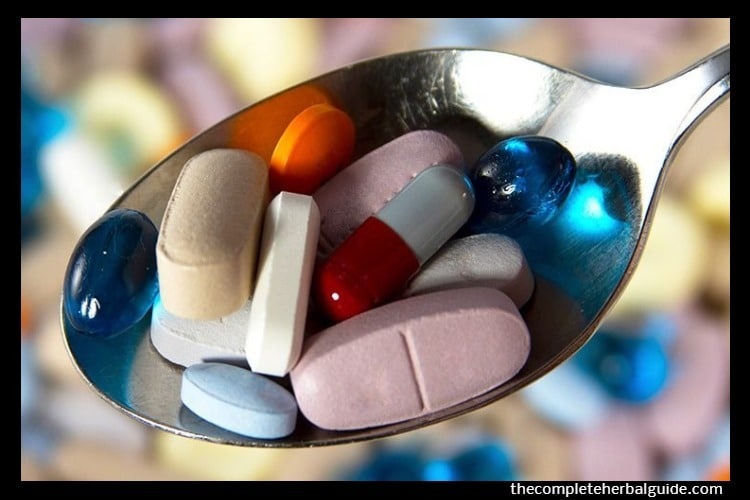
Managing PMS: 6 Supplements to Help You with Menstruation
PMS or Premenstrual Syndrome is an experience lots of women have during menstruation. In fact, there is about 3 out of 4 women that experience PMS, and it affects women differently during menstruation. PMS mainly changes your physical and mental aspects which can range from mild to severe symptoms.
Menstruation symptoms often can be made worse due to some nutritional deficiencies, and it is said that you are what you eat. In this sense, it is just right to know what vitamins and minerals would help you out through your period more comfortably, just like how you were learning on inserting a menstrual cup for a more comfortable period, right? So, to help you out, here are the vitamins and minerals that you might want to check out.
Magnesium
Symptoms like bloating are commonly found in women during menstruation, along with it are fluid retention and tenderness in your breasts. In this case, you might want to add magnesium supplement to your daily supplement wherein about 360mg of magnesium a day is recommended.
While taking magnesium does not guarantee that it will help, some studies could back it up. For example, a study has found out that women who took 200 mg of magnesium per day had less fluid retention by the second time of the month in taking the supplement.
On the other hand, magnesium has some side effects that can cause diarrhea or upset stomach and some changes in blood pressure, which is why it is necessary to talk to your doctor before trying to figure out if this supplement fits well for your body.
Calcium
Many studies have proved that calcium actually helps women cope up with some symptoms of PMS. For instance, a study of women who took 500 mg of calcium carbonate twice a day for a duration of 3 months resulted in fewer changes in appetite, less fatigue, and less depression than women with PMS that does not take the said supplement.
Additionally, since women with PMS symptoms do not get enough calcium for their diet, it may significantly enhance the changes throughout the menstrual cycle. Moreover, a 2017 study, which is a clinical trial, found out that calcium supplements helped reduce symptoms of PMS like bloating and fatigue, and is also effective for lowering psychological symptoms.
Lastly, another study has found out that a high intake of calcium and vitamin D from food may lower the chances of developing PMS. Experts recommend consuming 1200 mg of calcium a day from food or supplement, which is equivalent to about four servings of skim or low-fat dairy or a fortified juice per day.
Essential Fatty Acids
Also known for short as EFAs, these fatty acids are vital for various reasons since they can prevent heart diseases, abnormalities in your organs, and depression. However, in one study, it has been found that it can be also helpful in treating Premenstrual Syndrome.
The study has made women take about 2 grams of EFAs and vitamin E which has resulted in a significant improvement on PMS symptoms after three months of treatments, and again of six months later. Most importantly, side effects were not noted while taking the supplement.
Chasteberry
Chasteberry is a tree that grows in Central Asia and the Mediterranean. This tree’s fruit has been used for centuries to treat different conditions across the globe. In this case, you can say that a supplement has been formed and has now shown to reduce physical symptoms of PMS like breast tenderness, fluid retention, and psychological symptoms.
One study supported these claims when women with PMS took one tablet or 20 mg native extract of chasteberry saw that their PMS symptoms had improved significantly over several cycles.
Gingko Biloba
Another herbal supplement, some evidence found that gingko is actually effective in treating some PMS symptoms. There’s a study that has found that women who took 40 mg leaf extract of tablets three times a day for several days of two menstrual cycles resulted in reduced symptoms.
Iron
Iron is especially important for women since you are more likely to have low iron levels during menstruation due to blood loss, which is why it is important to up your iron intake. After all, low iron levels can lead to health issues like headaches, dizziness, fatigue, and can make period symptoms worse.
Either you take a supplement, or incorporate it with your healthy diets such as leafy greens, vegetables, pumpkin seeds, beans, and steak to have your daily dose of iron.
Takeaway
Menstruation does make you go through a series of health issues and complications. Not to mention that along with it are symptoms that may or may not affect your daily activities. Because of this, it is essential to know what specific actions can you take to help yourself during menstruation, like knowing which vitamins will fit you best or using and inserting menstrual cup during your period to enhance your comfortability.











